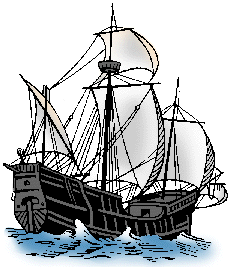: any of several sailing ships
specifically
: a small 15th and 16th century ship that has usually three masts with lateen sails
Subscribe to America's largest dictionary and get thousands more definitions and advanced search—ad free!
Merriam-Webster unabridged

